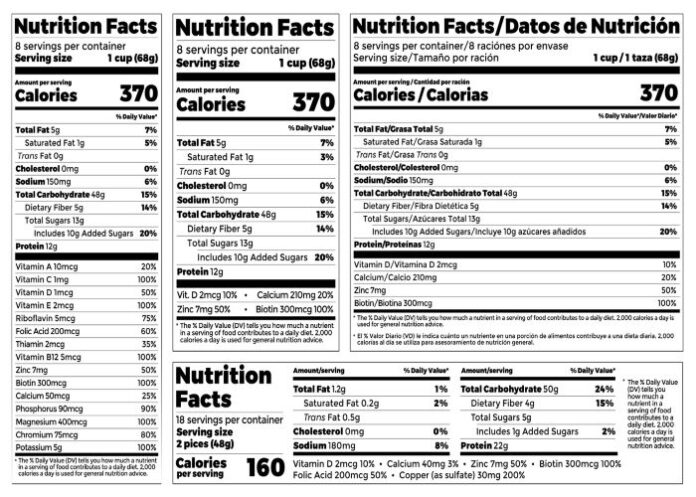Major changes are in store for how food items are labelled in South Africa, with the Department of Health having gazetted proposed recommendations in a 238-page document that also includes eliminating the description of products as “smart” or “intelligent” food.
Also suggested is the prohibition of terms like “wholesome”, “nutritious”, “nutraceutical” or “super-food”.
Any words, logos or pictorials that in any way imply the food is better or superior – including the name and trade name – are also banned under the new rules.
The changes – called the Regulations Relating to the Labelling and Advertising of Foodstuffs – reinforce many existing rules for product packaging, like ingredient lists and sell-by dates, but also introduce many other shifts in food advertising.
The department also wants to clamp down on other packaging claims that may be misleading. While products can still use “grain fed”, “grass-fed”, “Karoo lamb”, “natural lamb”, “country reared”, “free range”, “pure”, etc., these must be linked to a specific protocol approved or registered with the Department of Agriculture, or regulated under the Agricultural Product Standards Act.
Where foods are not regulated under this Act, statements including “fresh”, “natural”, “nature’s”, “pure”, “traditional”, “original”, “authentic”, “real”, “genuine”, “home-made”, “farmhouse”, “hand-made”, “selected”, “premium”, “finest”, “quality”, or “best” or words with a similar meaning are still permitted – but this must be reflected in the ingredients.
Other labels prohibited are endorsements from celebrities, organisations and any medical practitioners, while claims of providing a nutritionally balanced diet are also on the chopping block.
BusinessTech reports that the proposed regulations are progressive, gearing up for a generation of new products that will be coming that might replace meat. As such the regulations specify that any product where the percentage of meat present is less than 25%, the name or description may not contain the word “meat”.
Warning labels
In line with a growing body of calls nationally and globally, the department recommends products that are high in sugar and fat content carry warning labels.
There must also be mandatory front-of-package labelling (FOPL) on any pre-packaged foodstuffs containing added saturated fat, added sugar, added sodium and which exceed the nutrient cut-off values for total sugar, total sodium or total saturated fatty acids.
The cut-offs are:
Total sugar(s)
• Solids: >10.0g per 100 g
• Liquids: >5.0g per 100 ml
Total Saturated fatty acids
• Solids: >4.0g per 100 g
• Liquids: >3.0g per 100 ml
Total Sodium
• Solids: >400mg per 100 g
• Liquids: >100mg per 100 ml
A similar label must be displayed for any item containing artificial sweeteners. The FOPL must be clearly visible and where possible, integrated into the packaging.
The relevant foodstuffs must display such logos on the front of the package – which must cover 25% of the front of it.
Most notably, products with these labels can’t be marketed to children, or make any claim with an energy, health or nutrition message – regardless of whether their nutritional profile passes the Nutrient Profiling Model used to determine as such.
This poses a huge issue for many of South Africa’s favourite snacks, like potato crisps and sodas – as well as the whole breakfast cereal market, which can carry sugar content as high as 33g per 100g, and is often directly marketed to children.
The proposed regulations also deal with country of origin, batch identification and date marking, and a section on special provisions relating to, among others, seasonal ingredients in the foods, lists of ingredients and the variable proportions of the ingredients in the product. General labelling requirements also specify the listing of food additives including flavourings, tartrazine, preservatives, anti-oxidants as additives, allergens and uncommon allergens.
The regulations are open for comment for three months.
See more from MedicalBrief archives:
Why SA isnʼt ready for health claims on food labels
Soft drink taxation, advertising and labelling laws significantly impact behaviour
SA Heart and Stroke Foundation removes its logo from refined grains

